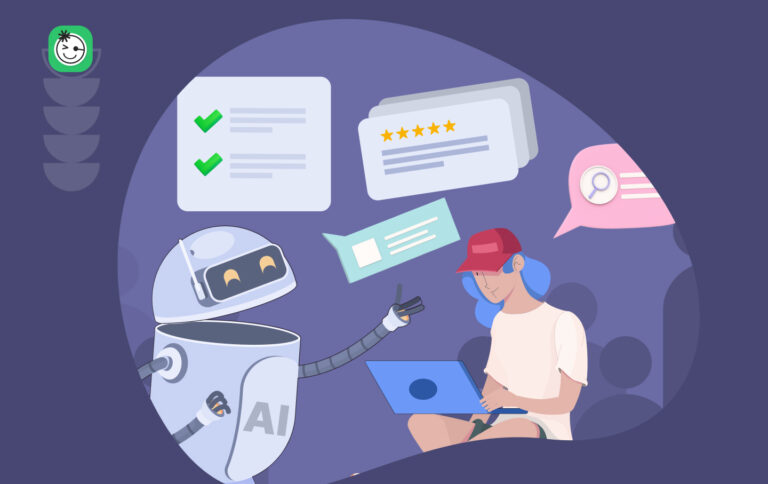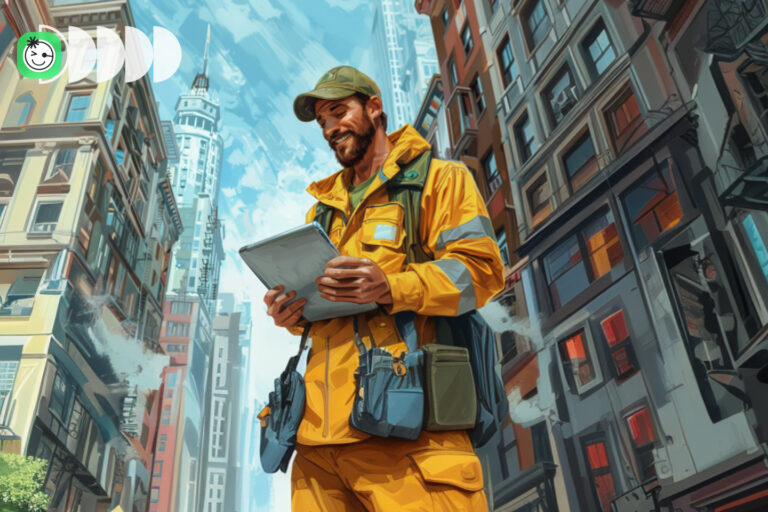How Many Jobs Will AI Replace by 2030
What Jobs Will AI Replace?
The rapid advancement of artificial intelligence is ushering in a new era of automation, leaving many professionals wondering about the future of their careers. As AI systems become increasingly sophisticated, their ability to perform tasks traditionally handled by humans raises concerns about job displacement across various industries. In this comprehensive analysis, we’ll delve into the roles most vulnerable to AI disruption and identify the skills and occupations poised to withstand the AI revolution.
Jobs Most Likely to be Replaced by AI
While AI promises remarkable advancements across sectors, it also poses a significant threat to certain occupations. As AI systems continue to evolve, specific roles are more susceptible to automation due to their repetitive, routine, or rules-based nature. Understanding which jobs are at the highest risk can help individuals and organizations prepare for the impending shift.

Roles in Imminent Danger of AI Disruption
Based on current AI capabilities and projections, several occupations are particularly vulnerable to replacement by artificial intelligence in the near future:
- Administrative and Clerical Roles
Jobs involving data entry, record-keeping, and routine office tasks are prime candidates for AI automation. As AI excels at processing large volumes of data and following predefined rules, roles such as administrative assistants, data entry clerks, and bookkeepers face significant risk of displacement.
- Manufacturing and Production Workers
The manufacturing sector has already witnessed substantial automation with the introduction of robotics and AI-powered quality control systems. Jobs involving repetitive assembly line work, equipment monitoring, and inspection are likely to be further impacted by advancements in AI and machine learning algorithms.
- Customer Service Representatives
AI-powered chatbots and virtual assistants are rapidly improving their ability to understand and respond to customer inquiries. As natural language processing and conversational AI continue to advance, roles in customer service, telemarketing, and call centers may experience substantial automation.
- Transportation and Logistics Occupations
The advent of self-driving vehicles and AI-powered logistics optimization could significantly disrupt jobs in transportation, including truck drivers, delivery workers, and taxi/rideshare drivers. AI systems can potentially handle navigation, route planning, and vehicle operation more efficiently.
- Financial and Accounting Professionals
AI’s proficiency in data analysis, pattern recognition, and decision-making poses a threat to certain financial and accounting roles. Tasks such as bookkeeping, tax preparation, auditing, and financial analysis could be streamlined or automated by AI systems, impacting jobs in these fields.
It’s crucial to note that while AI may automate specific tasks within these occupations, it may not necessarily replace entire job roles. However, individuals in these fields should proactively acquire new skills and adapt to the changing job market landscape.
Jobs Unlikely to Be Replaced by AI
While AI is undoubtedly transforming various industries, there are certain occupations that are likely to remain resilient due to the unique human skills and attributes they require. These roles involve higher-order cognitive abilities, emotional intelligence, creativity, and interpersonal interactions that are challenging to replicate with current AI technologies.

Roles Positioned to Thrive in an AI-Driven Future
As AI continues to evolve, the following jobs are poised to withstand the impact of automation and remain in high demand:
- Creative Professionals
Roles that involve a significant degree of creativity, such as artists, writers, designers, and musicians, are less susceptible to AI replacement. While AI can assist with certain creative tasks, the ability to generate truly original ideas, express emotions, and infuse work with human perspective remains a uniquely human strength.
- Roles Requiring Emotional Intelligence
Occupations that involve empathy, emotional understanding, and interpersonal skills are challenging for AI to replicate. Jobs in counseling, therapy, social work, and human resources rely heavily on emotional intelligence, making them less likely to be replaced by AI in the foreseeable future.
- Educators and Instructors
The role of educators and instructors is multifaceted, involving not only the transfer of knowledge but also the ability to inspire, motivate, and adapt to individual learning styles. AI may assist in delivering educational content, but the human element of teaching is difficult to replicate entirely.
- Healthcare Professionals
While AI can aid in diagnosis, treatment planning, and data analysis, healthcare roles that involve direct patient interaction, critical decision-making, and emotional support are unlikely to be fully automated. Physicians, nurses, therapists, and caregivers provide a level of human touch and empathy that AI struggles to match.
- Skilled Trades and Craft Workers
Jobs that require physical dexterity, tactile skills, and on-site problem-solving abilities are less susceptible to AI replacement. Roles such as plumbers, electricians, carpenters, and mechanics involve hands-on work that is challenging to automate with current AI technologies.
- Leadership and Management Roles
Effective leadership and management often rely on soft skills, such as strategic thinking, decision-making, team building, and emotional intelligence. While AI can provide data-driven insights, the ability to inspire, motivate, and lead teams remains a uniquely human capacity.
Jobs Safe from AI
As artificial intelligence rapidly permeates various industries, a pivotal question arises: Which careers will remain largely immune to the disruptive forces of automation? While AI’s prowess in crunching data and optimizing processes is undeniable, certain professions are fortified by an intrinsic human essence that machines have yet to replicate convincingly.
Careers Rooted in the Essence of Humanity
- The Creative Vanguard
Artists, designers, and creative visionaries breathe life into ideas, captivating audiences with their ability to evoke emotions and craft narratives that resonate with the human experience. From the stroke of a painter’s brush to the artful arrangement of spaces by interior designers, these roles demand a depth of imagination and cultural understanding that transcends AI’s current capabilities.
- The Emotional Architects
In the realm of mental health, professionals like psychologists, therapists, and counselors navigate the complexities of the human psyche, offering personalized guidance and support tailored to individual circumstances. Their ability to forge authentic connections, empathize, and understand the nuances of human behavior remains a bastion of humanity that AI has yet to breach.
- The Social Pillars
Social workers, advocates, and community organizers are the unsung heroes who weave the fabric of society, championing the rights of underrepresented groups and navigating intricate social dynamics. Their roles demand a profound grasp of cultural nuances, emotional intelligence, and the ability to navigate complex interpersonal interactions – skills that remain firmly rooted in the human experience.
- The Artisanal Craftsmen
In a world of mass production, master craftsmen and specialized technicians stand as guardians of artisanal traditions, blending meticulous manual dexterity with problem-solving prowess. From the skilled hands of a watchmaker to the precision of a bespoke tailor, these professions thrive on the ability to adapt to unique challenges and imbue their work with a personal touch that AI struggles to emulate.
- The Ambassadors of Influence
Diplomats, mediators, and negotiators navigate the intricate web of human relationships, employing strategic communication, cultural sensitivity, and the ability to read subtle social cues. Their roles demand a nuanced understanding of human psychology and the art of persuasion, skills that remain elusive to AI’s current limitations in simulating authentic interpersonal dynamics.
As AI continues to redefine the boundaries of automation, these careers stand as bastions of human ingenuity, emotional resonance, and social intelligence – traits that will remain indispensable in a world where machines and humans coexist and collaborate.
Building AI Resilience: Adaptive Skills for a Future-Proof Career
While certain professions may be relatively insulated from AI automation, embracing a mindset of continuous learning and skill development is crucial for long-term career resilience. As AI capabilities advance, the demand for human workers will shift, requiring adaptability and the acquisition of new competencies.
Future-Proofing Your Career in an AI-Driven World
- Cultivate Creativity and Critical Thinking
As AI excels at automating routine tasks, the premium on human creativity and critical thinking abilities will only increase. Developing skills such as problem-solving, innovative thinking, and the ability to synthesize information from diverse sources will become paramount in an AI-driven workforce.
- Embrace Lifelong Learning
In a rapidly evolving technological landscape, the concept of “learning for life” will be essential. Staying abreast of emerging trends, acquiring new skills, and being open to upskilling or reskilling will be critical to remaining relevant and valuable in the job market.
- Harness Emotional Intelligence
While AI continues to struggle with replicating human emotions and social cues, emotional intelligence will become an increasingly valuable asset. Developing skills such as empathy, effective communication, and the ability to build meaningful connections will differentiate human workers from AI counterparts.
- Seek Out Human-Machine Collaboration Opportunities
Rather than viewing AI as a threat, individuals should explore opportunities to collaborate with AI systems, leveraging their respective strengths. This could involve using AI tools to enhance productivity, automate repetitive tasks, or gain insights from data analysis, freeing up human workers to focus on higher-level tasks that require human judgment and creativity.
- Develop Specialized Expertise
As AI automates more generalized tasks, the demand for specialized expertise and niche skills will rise. Individuals who cultivate deep domain knowledge, coupled with the ability to apply that knowledge creatively, will become increasingly valuable in the job market.
While some occupations may indeed be automated by AI, it’s crucial to recognize that this transformation is not a zero-sum game. Just as previous industrial revolutions paved the way for new job opportunities, the AI revolution will give rise to novel professions and skill sets that we can scarcely imagine today.
Those who can seamlessly blend their creativity, emotional intelligence, and problem-solving prowess with the power of AI will be poised to unlock new realms of productivity, innovation, and personal fulfillment. Whether it’s artists pushing the boundaries of creative expression, mental health professionals providing tailored support, or skilled artisans infusing their craft with technological sophistication, the fusion of human ingenuity and AI will open doors to exciting new possibilities.
Moreover, as AI automates more routine tasks, the demand for specialized expertise and niche skills will soar, creating opportunities for those who can cultivate deep domain knowledge and apply it in innovative ways. This shift towards specialization will not only enhance job security but also foster a sense of purpose and mastery that transcends the limitations of traditional roles.
Ultimately, the AI revolution is not a force to be feared but rather an opportunity to redefine our relationship with work and technology. By embracing a growth mindset, developing future-proof skills, and fostering human-machine collaboration, we can navigate this transformation with confidence and emerge as architects of a more dynamic, fulfilling, and prosperous future of work.







